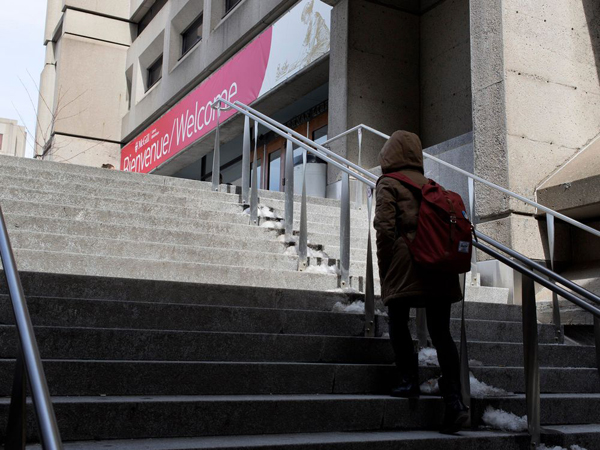After finalizing updates to the Charter of Students’ Rights last October, McGill continues to deliberate changes to the Student Code of Conduct, including expanding the meaning of the “university context.” While the revisions remain tentative, McGill has made them available online, alongside a form soliciting student feedback the changes. Senate expects to finalize the Student Code of Conduct by the end of this semester.
“University context” refers to the locations where McGill has jurisdiction, meaning its regulations, such as the Code of Conduct, can be applied. Currently, it encompasses McGill property and field study programs, but has not previously been interpreted as applying to off-campus events organized by students. The McGill Senate has been considering broadening the definition of the context in the Charter and the Code for the past year, according to Engineering Senator Tre Mansdoerfer.
“Things that impact well-being on campus are now under the university context,” Mansdoerfer said. “Let’s say a student assaults someone at a bar off-campus, but they both go to McGill. The university can now have some sort of role in that.”
Public discussion surrounding the McGill context has stemmed in part from a 2015 incident involving two then McGill students, Conrad Gaysford and Kathryn Leci, outside of an off-campus house party. Despite the fact that both were enrolled at McGill, Leci struggled to convince administrators to take disciplinary action against Gaysford because the incident did not occur within the jurisdiction outlined by the university context.
Changes to the Student Code of Conduct are still being debated. Potential wording for the Code’s new definition of “university context” was presented to Senate at its meeting on Nov. 23, 2017. The new wording for the university context outlines circumstances that fall under it and more generally upholds a right for members of the McGill community to enjoy the university environment.
“‘University context’ means circumstances occurring […] off-campus, where the conduct has consequences that may be reasonably seen to adversely affect the security of students […] while on campus or while participating in university programs, events or activities,” the definition reads.
Mansdoerfer said that the new definition will result in closer administrative oversight of large-scale student drinking events that have previously fallen into grey area, such as Frosh, Carnival, and Science Games.
Dean of Students Christopher Buddle nonetheless cautioned that there was still much work to be done within the working group for Code revisions, and other forums as well.
“There is strong student representation on the workgroup,” Buddle wrote in an email to The McGill Tribune. “There is also an advisory panel being formed, which will likely [meet] in early February. That panel will consist of 40 to 50 people representing key stakeholders, from student societies to members of the Committee on Student Discipline.”
Buddle emphasized that the working group will seek broad consultation with members of the McGill community, and prioritize student rights when considering revisions to the Code.
“We remain firm in ensuring there is due process for any student accused of a violation of the Code,” Buddle wrote. “We need to take the time required to do things right.”
In the meantime, last semester’s changes to the Charter of Students’ Rights provide a reference for the definition of the university context. The updated Charter also included a provision that aims to protect students’ scholarly work, such as papers published in academic journals.
“I support the change made to the Charter, however […] I will be interested to see how this change is institutionalized, and if it will lead to any tangible increase in respect for student scholarship,” McGill International Review Editor Marissa Fortune wrote in a message to the Tribune. “Although the addition to [the Charter] is much too broad to provide any meaningful impact to the way intellectual property is protected among students, it is a positive step in the right direction.”








